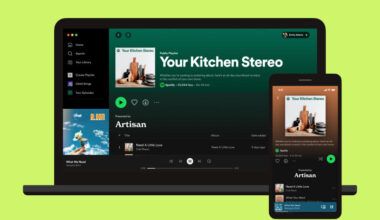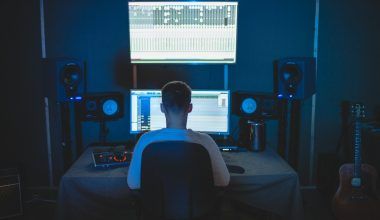Learning to play a musical instrument is one of the most exciting skills you can develop. Whether you’re interested in playing for fun, impressing your friends, or even sharing your music online, it all starts with picking the right instrument. But a common question for beginners is: which is the easiest instrument to learn?
The good news is that some instruments are beginner-friendly and don’t require years of practice before you can play your first tune. In this blog, we’ll explore the easiest instruments to learn, explain why they’re great choices, and provide practical tips to get started. If you’ve been dreaming about making music, this guide will help you take the first step with confidence!
Why Should You Learn an Instrument?
Playing a musical instrument is more than just a fun hobby—it has many benefits. Learning an instrument can:
- Boost Your Brain Power: It improves memory, focus, and problem-solving skills.
- Relieve Stress: Music is a great way to relax and express yourself.
- Build Confidence: Playing songs you love will make you feel accomplished.
- Spark Creativity: Once you learn the basics, you can start creating your own music.
Starting with an easy-to-learn instrument will keep you motivated and make the process enjoyable.
What Makes an Instrument Easy to Learn?
When deciding which is the easiest instrument to learn, consider these factors:
- Few Technical Skills Required: Some instruments have simpler techniques, making them great for beginners.
- Easy to Handle: Instruments that are lightweight and portable are easier to practice.
- Affordable Options: Beginner instruments shouldn’t break the bank.
- Quick Progress: Instruments that let you play simple songs quickly will keep you motivated.
Let’s explore some beginner-friendly options that meet these criteria!
The 10 Easiest Instruments to Learn
Here’s a list of instruments that are great for beginners. Each one has its own charm, and all are beginner-friendly.
1. Ukulele
The ukulele is small, affordable, and super easy to learn. With just four strings, you can quickly pick up chords and play songs.
- Why it’s Easy: Its strings are soft and don’t hurt your fingers like a guitar might. Most popular songs can be played with just a few chords.
- How to Start: Buy a beginner ukulele (they’re budget-friendly!) and follow free tutorials online. You’ll be strumming along in no time!
2. Piano or Keyboard
The piano is one of the best instruments for beginners because of its straightforward layout. The notes are laid out in a way that’s easy to understand.
- Why it’s Easy: You don’t need to tune it, and you can start with just one hand to play melodies.
- How to Start: A simple keyboard is perfect for learning. Start with basic songs like “Twinkle, Twinkle, Little Star.”
3. Recorder
The recorder is often introduced to kids in school because it’s simple to learn and very affordable.
- Why it’s Easy: It doesn’t require much effort to produce a sound, and basic melodies can be learned quickly.
- How to Start: Buy a plastic recorder and learn the notes through beginner guides or YouTube tutorials.
4. Harmonica
This small, pocket-sized instrument is perfect for beginners who want to experiment with music without a steep learning curve.
- Why it’s Easy: It doesn’t need tuning, and simply breathing in and out produces a melody.
- How to Start: Choose a diatonic harmonica and practice playing simple tunes like “Oh Susanna.”
5. Drums (Electronic or Cajón)
Drums are great for those who enjoy rhythm. You don’t need to read music to start learning basic beats.
- Why it’s Easy: You can focus on the rhythm without worrying about melody.
- How to Start: Start with a small drum pad or a Cajón (a box drum) and learn basic beats.
6. Guitar (Acoustic)
While the guitar might look intimidating at first, it’s actually very beginner-friendly. With just three or four chords, you can play hundreds of songs.
- Why it’s Easy: Basic chords are easy to learn, and there are countless free tutorials available.
- How to Start: Get an acoustic guitar with nylon strings—they’re softer on the fingers.
7. Tambourine
The tambourine is an underrated instrument that’s simple and fun to play.
- Why it’s Easy: Just shake or tap it to the beat! No complicated techniques are required.
- How to Start: Use it to add rhythm while listening to your favorite songs.
8. Violin (Beginner Level)
While the violin is known as a challenging instrument, beginners can learn basic tunes with practice.
- Why it’s Easy: You can start with simple melodies before moving to more advanced techniques.
- How to Start: Take beginner lessons or watch online tutorials for proper bowing techniques.
9. Bongos or Congas
These percussion instruments are fantastic for beginners who want to explore rhythm and beats.
- Why it’s Easy: You don’t need to read music; just follow the rhythm of a song.
- How to Start: Practice simple beats with your hands while listening to a track.
10. Kalimba (Thumb Piano)
The Kalimba, or thumb piano, is a unique and beginner-friendly instrument that’s easy to pick up.
- Why it’s Easy: All you need to do is press the keys with your thumbs.
- How to Start: Use tutorials to learn popular songs or experiment with creating your own melodies.
How to Choose the Right Instrument for You
Still wondering which is the easiest instrument to learn? Consider these tips when choosing:
- Think About Your Goals: Do you want to play for fun, join a band, or create music to share online?
- Consider Your Budget: Some instruments, like the ukulele and recorder, are very affordable.
- Pick Something You’ll Enjoy: Choose an instrument that excites you—it will make practice more enjoyable.
- Start Small: Don’t invest in an expensive instrument until you’re sure it’s the right fit.
Benefits of Starting with an Easy Instrument
Learning an easy instrument has many advantages:
- Quick Progress: You’ll be able to play songs in no time, which boosts confidence.
- Low Stress: Simple techniques mean less frustration and more fun.
- Foundation for Other Instruments: Once you learn one instrument, it’s easier to pick up others.
Final Thoughts
If you’ve been asking yourself which is the easiest instrument to learn, now you have plenty of options! From the cheerful ukulele to the versatile piano, there’s an instrument for everyone.
Start small, have fun, and don’t be afraid to experiment. Whether you’re playing for yourself or dreaming of sharing your music on platforms like Beatport, learning an instrument is a step toward expressing your creativity.
Related Articles:
For further reading, explore these related articles:
- Playing an Instrument is Great for Your Mental Health. Here’s Why
- 10 Things Artists Can Learn From Entrepreneurs
- 8 Skills to Learn as an Indie Artist in 2024
For additional resources on music marketing and distribution, visit Deliver My Tune.






